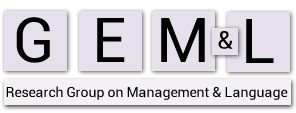The Palgrave Handbook of Social Sustainability in Business Education Chapter: Communicating Sustainability Through Language Differences with Rich Point Pedagogy
Stephanie Jo Kent, Glynis Anna Jones, Sulu Zhambyl & Jeffrey A. Kappen
Communicating Sustainability Through Language Differences Using Rich Point Pedagogy
Abstract
The organic skills of communication performed spontaneously by humans will increase in significance as machine translations powered by generative artificial intelligence (AI) begin to spread. Businesses will likely adopt AI as a solution for language difference inside organizations, for cost savings and presumed efficiencies, particularly when facing fairly simple tasks. In this context, AI translation could continue a linear bias in corporate language policies that assumes information sharing equals understanding. However, when dealing with complex issues like the United Nations Sustainable Development Goals (SDGs), misunderstandings can occur for many reasons, requiring immediate, nonlinear, adaptive recognition and repair. Rich point pedagogy supports languaging: teaching business students to navigate linguistic diversity as normal variation in language use. Learning to recognize the ubiquitous communication feature of misunderstanding and applying robust processes of repair are fundamental to achieving the SDGs because transformation is prefigured through communication. A rich point pedagogy builds collaborative communication skills to support creative working relationships for designing and implementing business priorities to end poverty (SDG1), ensure good health and well-being (SDG3), improve gender equality (SDG5), provide decent work and economic growth (SDG8), and reduce inequalities overall (SDG10). Maximizing rich points during communication builds capacity to align business strategies that support the environment with the needs of stakeholders, localized customers and suppliers, and especially language-diverse employees within teams and across organizations.
